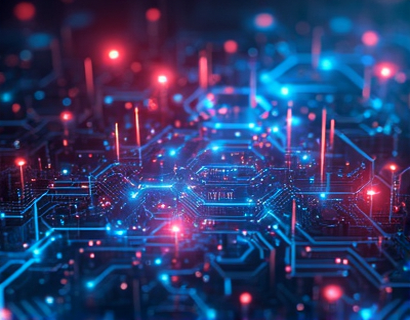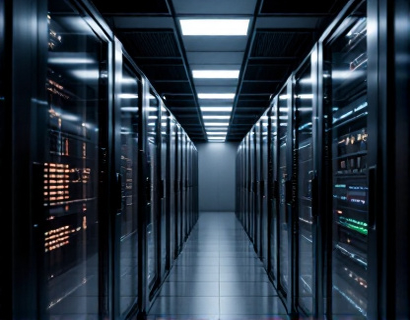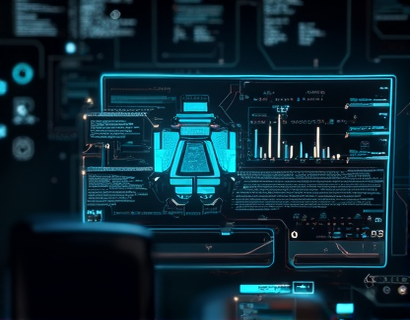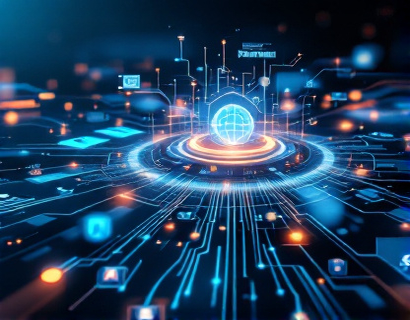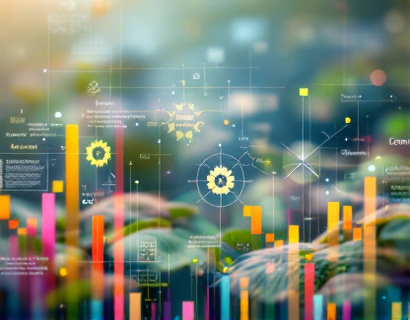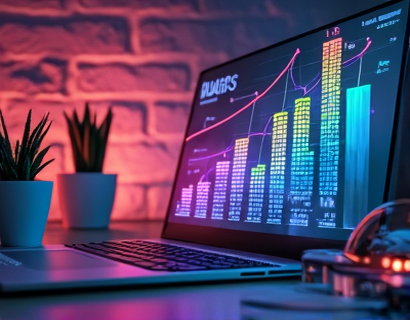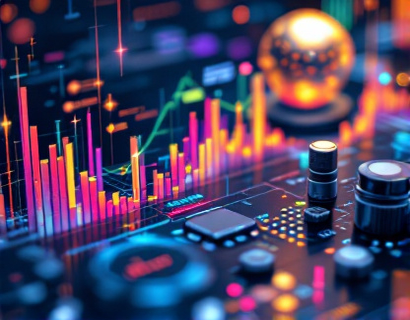Unlocking Digital Transformation: Harnessing AI and Crypto for Next-Gen Productivity Solutions
The digital landscape is undergoing a profound transformation, driven by the convergence of artificial intelligence (AI) and cryptocurrency technologies. This fusion is not just a trend but a fundamental shift in how we approach productivity, efficiency, and innovation. For tech-savvy innovators and early adopters, understanding and leveraging these technologies can open up new avenues for growth and efficiency. This article delves into the intricate ways AI and cryptocurrency are reshaping the future of work, offering insights and strategies for harnessing their power.
Understanding AI and Cryptocurrency
Artificial intelligence, defined as the simulation of human intelligence processes by machines, particularly computer systems, is revolutionizing industries across the board. From healthcare to finance, AI is enhancing decision-making, automating routine tasks, and providing insights that were previously unattainable. On the other hand, cryptocurrency, a digital or virtual currency that uses cryptography for security, operates on decentralized networks like blockchain. It offers a new paradigm for financial transactions, ensuring transparency, security, and efficiency.
Synergy of AI and Cryptocurrency
The true power of these technologies emerges when they are combined. AI can process and analyze vast amounts of data generated by blockchain transactions, providing valuable insights and predictive analytics. Conversely, cryptocurrency can facilitate seamless and secure transactions for AI-driven services, creating a symbiotic relationship that accelerates innovation and productivity.
Enhancing Productivity with AI
AI's impact on productivity is multifaceted. One of the most significant benefits is automation. Repetitive and time-consuming tasks can be automated, freeing up human resources for more strategic and creative work. For instance, AI-powered tools can manage scheduling, data entry, and even customer service through chatbots, significantly reducing operational costs and increasing efficiency.
Moreover, AI enhances decision-making through advanced analytics. By analyzing large datasets, AI can identify patterns and trends that humans might miss, leading to more informed and timely decisions. This is particularly valuable in complex industries like supply chain management, where AI can optimize routes, predict demand, and reduce waste.
Cryptocurrency and Decentralized Productivity Solutions
Cryptocurrency introduces a new level of decentralization and security to productivity solutions. Traditional centralized systems are vulnerable to single points of failure and security breaches. Blockchain technology, the backbone of cryptocurrency, provides a decentralized and immutable ledger, ensuring data integrity and security. This is crucial for businesses handling sensitive information, such as financial data or personal records.
Decentralized applications (dApps) built on blockchain can offer new productivity tools that are transparent, tamper-proof, and accessible to anyone with an internet connection. For example, decentralized storage solutions can provide secure and scalable data storage, eliminating the need for expensive and centralized cloud services.
Smart Contracts and Automated Agreements
One of the most transformative applications of blockchain is smart contracts. These self-executing contracts with the terms directly written into code can automate and enforce agreements without intermediaries. In a business context, smart contracts can streamline processes such as invoicing, payment processing, and compliance checks. This not only reduces administrative overhead but also minimizes the risk of fraud and errors.
For instance, in project management, smart contracts can automatically release payments to contractors once milestones are met, ensuring timely and fair compensation. This level of automation and trust can significantly enhance collaboration and productivity across teams and organizations.
Tokenization of Assets and Resources
Tokenization, the process of converting assets into digital tokens on a blockchain, is another area where AI and cryptocurrency intersect to boost productivity. By tokenizing assets, businesses can create fractional ownership, making it easier to raise capital and distribute resources. For example, real estate tokens can allow multiple investors to own a portion of a property, increasing liquidity and accessibility.
In the context of productivity, tokenized resources can be managed and allocated more efficiently. For instance, cloud computing resources can be tokenized, enabling dynamic pricing and allocation based on real-time demand. This not only optimizes resource usage but also reduces costs for businesses.
Enhancing Security and Privacy
Security and privacy are paramount in the digital age, and AI and cryptocurrency offer robust solutions. AI can detect and mitigate cyber threats in real-time, analyzing patterns and anomalies to prevent breaches. Machine learning algorithms can adapt to new threats, providing a proactive defense mechanism.
Cryptography, the core of cryptocurrency, ensures that data is encrypted and secure. Blockchain's decentralized nature means that there is no single point of failure, making it highly resistant to attacks. This combination of AI and cryptocurrency can provide unparalleled security for sensitive business data, fostering trust and confidence in digital transactions.
Case Studies and Real-World Applications
Several companies are already leveraging the synergy of AI and cryptocurrency to drive productivity and innovation. For example, a logistics company used AI to optimize delivery routes and blockchain to create a transparent and secure supply chain. This not only reduced delivery times but also increased transparency, allowing stakeholders to track shipments in real-time.
Another example is a financial services firm that implemented smart contracts to automate trade settlement processes. This reduced the settlement time from days to minutes, significantly improving operational efficiency and reducing costs.
Challenges and Considerations
While the potential of AI and cryptocurrency is vast, there are challenges that need to be addressed. Regulatory uncertainty remains a significant barrier, as governments worldwide are still grappling with how to regulate these emerging technologies. Businesses must stay informed and compliant with evolving regulations to avoid legal issues.
Additionally, the technical complexity of integrating AI and blockchain solutions can be daunting. Organizations need to invest in skilled personnel and robust infrastructure to implement these technologies effectively. However, the long-term benefits far outweigh the initial challenges.
Future Outlook
The future of productivity is increasingly intertwined with AI and cryptocurrency. As these technologies continue to mature, we can expect even more innovative applications and integrations. The rise of Web 3.0, a decentralized internet powered by blockchain, will further enhance the capabilities of AI-driven solutions. This new web will prioritize user control, privacy, and security, creating a more equitable and efficient digital ecosystem.
For tech-savvy innovators and early adopters, embracing AI and cryptocurrency is not just a strategic advantage but a necessity. By staying at the forefront of these technologies, businesses can unlock new levels of productivity, innovation, and growth. The next generation of digital solutions promises to transform the way we work, making processes more efficient, secure, and collaborative.




